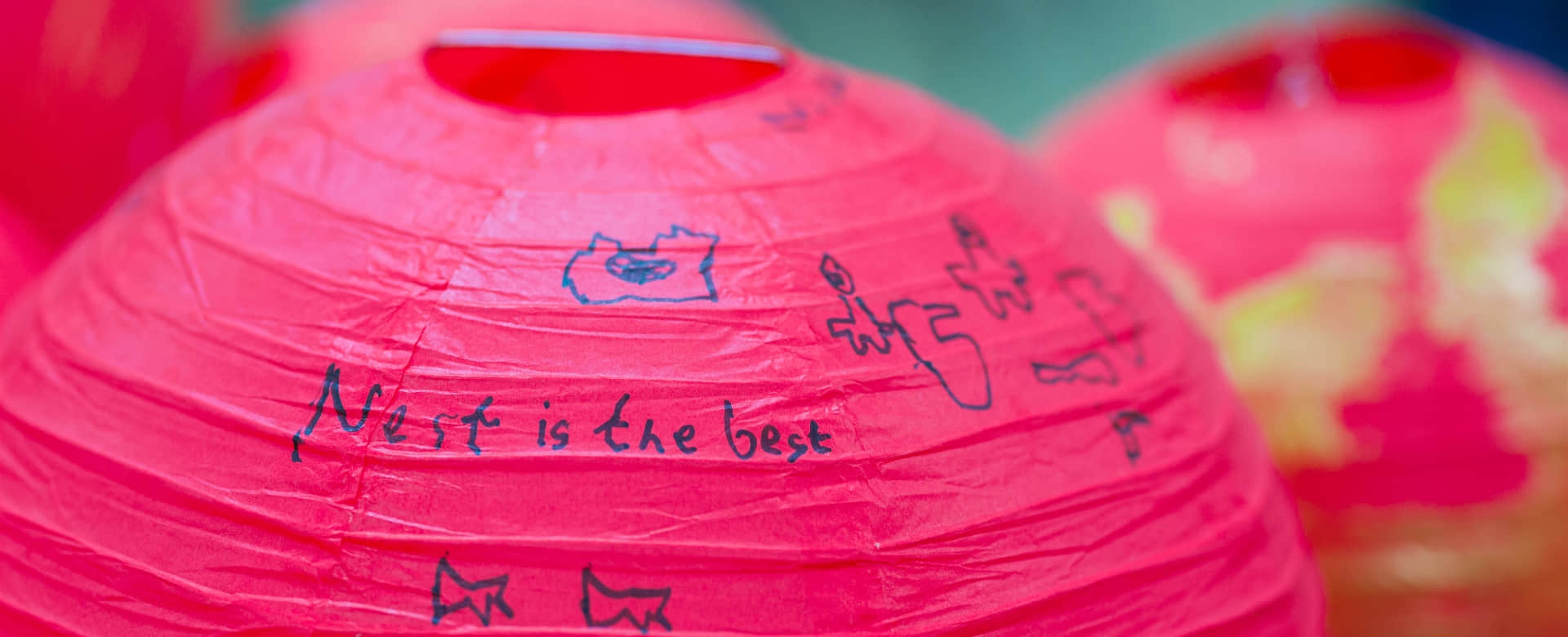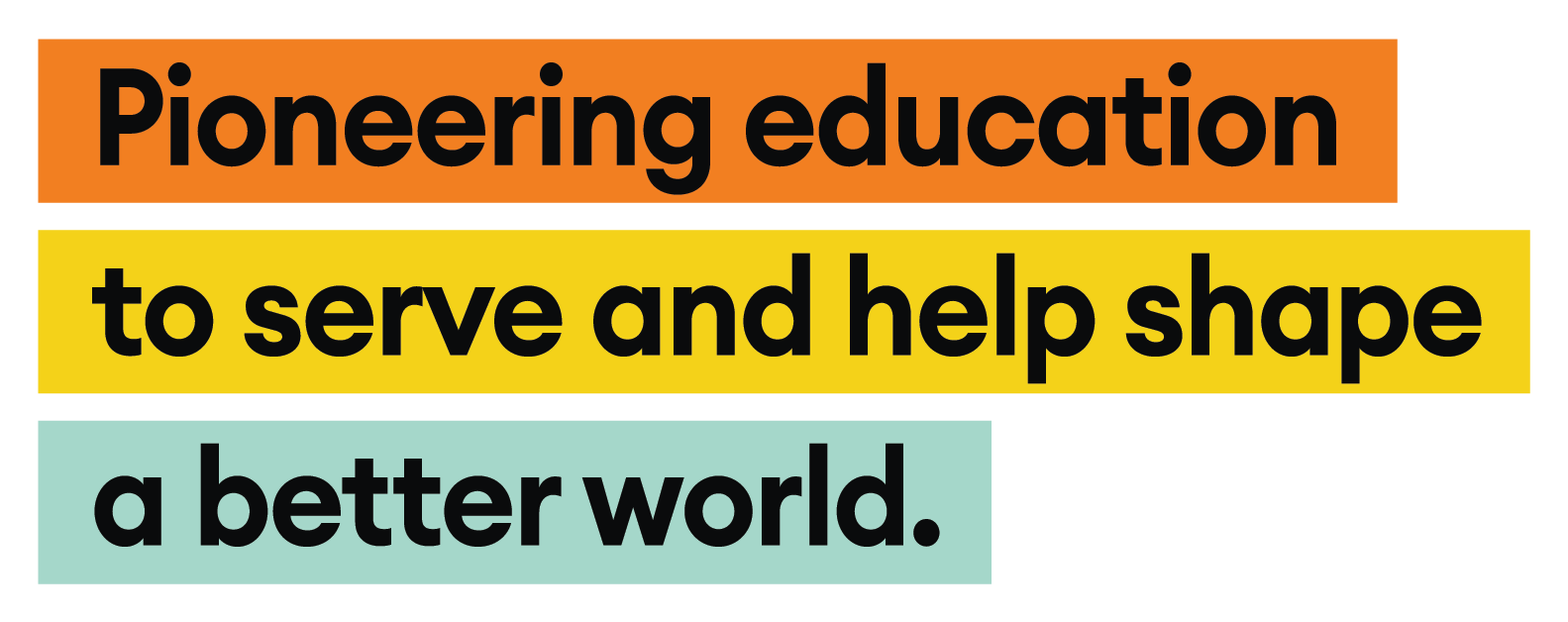Educational Insights丨Taking Care of Ourselves and Those We Love
05 Mar 2020

Welfare and Guidance Lead
Samantha Wood
As parents we know that we have a responsibility towards our children, to protect, love and help them to grow strong mentally, physically and intellectually, but what does that mean when we are faced with an unexpected danger, an event that seems beyond our control? Recently, I read an article which referenced the emergency announcement made on aircraft before take-off; ‘In case of emergency, put on your own oxygen mask first, then help your child.’ Whenever, I am travelling and hear this announcement, I am always tempted to respond in a defiant tone “No! I will not be selfish, I am a mother, I must save my child first” – my reaction has not dwindled even though my children are now in their twenties! However, having read the full article, the announcement, for the first time, made perfect sense; if we as parents and carers do not look after our own health, in all its forms, how can be possibly be fit enough to take care of our children? If adding the word responsibility helps, we indeed have a responsibility towards our children to set a positive example in the way we care for our own wellbeing. The situation we now face, with the interruptions to everyday life posed by the spread of Covid-19, makes us fear for the safety of our children, and other family members. We look to ways to protect and shield them from this uncertain world. It is at times such as this that, as parents, we need to take care of ourselves, and in doing so show how it is possible to sustain and nurture our spirit. With a renewed fortitude and balanced wellbeing, we are better placed to address the emotional needs of our children.
The situation we now face, with the interruptions to everyday life posed by the spread of Covid-19, makes us fear for the safety of our children, and other family members. We look to ways to protect and shield them from this uncertain world. It is at times such as this that, as parents, we need to take care of ourselves, and in doing so show how it is possible to sustain and nurture our spirit. With a renewed fortitude and balanced wellbeing, we are better placed to address the emotional needs of our children.
Top Tips to Your Wellbeing
1 Balance your intake The media is full of doom and gloom, this depresses our spirit, and presents a false view of life. Take time to read and listen to positive events, like the Chinese Giant Panda reserve – looking at these adorable creatures has got to make you smile!


 2 Laugh
When we laugh, we reduce feelings of stress and increase healthy hormones (endorphins). It also creates a stronger immune system. So, take some time to watch something funny on TV or the internet. Interestingly, even simply pretending to smile or laugh can trigger the real thing!
2 Laugh
When we laugh, we reduce feelings of stress and increase healthy hormones (endorphins). It also creates a stronger immune system. So, take some time to watch something funny on TV or the internet. Interestingly, even simply pretending to smile or laugh can trigger the real thing!
 3 Exercise
Taking some exercise, no matter whether it is yoga, a few miles on an exercise bike, dancing around the room or joining in with your child’s virtual PE lesson. The activity will boost your dopamine levels which will lead to increased happiness.
3 Exercise
Taking some exercise, no matter whether it is yoga, a few miles on an exercise bike, dancing around the room or joining in with your child’s virtual PE lesson. The activity will boost your dopamine levels which will lead to increased happiness.

 4 Express your feelings
It is ok to share your feelings with an adult you trust, or just write them in a diary. Sharing them can often reduce the negative impact that some emotions have. Be honest if you are feeling scared, worried, tired, unsure, guilty, or any number of other feelings: these are all perfectly natural. Remember though sharing these with our children is an unfair burden for them and holding onto negative emotions is a burden for yourself.
4 Express your feelings
It is ok to share your feelings with an adult you trust, or just write them in a diary. Sharing them can often reduce the negative impact that some emotions have. Be honest if you are feeling scared, worried, tired, unsure, guilty, or any number of other feelings: these are all perfectly natural. Remember though sharing these with our children is an unfair burden for them and holding onto negative emotions is a burden for yourself.
 5 Don’t be too hard on yourself
No one is perfect, even under the best of circumstances. You may wake up in the morning with great intentions, but if you don’t achieve everything you set out to do, there’s always tomorrow. Decide what are essential things to do and what would be added extras.
6 Take time for yourself
5 Don’t be too hard on yourself
No one is perfect, even under the best of circumstances. You may wake up in the morning with great intentions, but if you don’t achieve everything you set out to do, there’s always tomorrow. Decide what are essential things to do and what would be added extras.
6 Take time for yourself
 Set aside at least 30 minutes each day to do what you want - read a book; listen to some music; draw; the options are endless. As a parent you also deserve a break.
7 Not all problems are catastrophies
Try to base your thinking on reality, on facts rather than a view of the situation that our minds can create. Put things into perspective and focus the mind on the silver-lining – your child may not be able to go to school, but the e-learning provides an opportunity to share in their educational experience, for example.
Set aside at least 30 minutes each day to do what you want - read a book; listen to some music; draw; the options are endless. As a parent you also deserve a break.
7 Not all problems are catastrophies
Try to base your thinking on reality, on facts rather than a view of the situation that our minds can create. Put things into perspective and focus the mind on the silver-lining – your child may not be able to go to school, but the e-learning provides an opportunity to share in their educational experience, for example.


E-LEARNING
8 Share the good stuff Take some time to share and acknowledge the strengths of each family member – write them down and see if you find links between them. How can you call upon each of these strengths to help you as a family tackle the current situation?So now you have taken care of yourself, what about the children?
1 Mindfulness activities Try out some of these activities as a family Click "HERE" for more information. 2 Write a family happiness journal Take time each day as a family to add something to the journal, it can be a piece of writing, a drawing, or just something that makes you smile. 3 Expressing your gratitude
Encourage your child to write a letter of gratitude to someone. Why are they pleased to have this person in their life? What do they like about them? Why does this person make them smile?
4 Take a walk
Going for a walk is a relaxing activity, try a mindfulness walk, using all your senses as you walk around – what can you hear, smell, taste, see and how does it make you feel? If you can’t go outside try this virtual walk:
https://www.therapistaid.com/interactive-therapy-tool/mountain-visualization/active
3 Expressing your gratitude
Encourage your child to write a letter of gratitude to someone. Why are they pleased to have this person in their life? What do they like about them? Why does this person make them smile?
4 Take a walk
Going for a walk is a relaxing activity, try a mindfulness walk, using all your senses as you walk around – what can you hear, smell, taste, see and how does it make you feel? If you can’t go outside try this virtual walk:
https://www.therapistaid.com/interactive-therapy-tool/mountain-visualization/active
 5 Nurture a little life
Create a little indoor garden in the corner of your apartment or on the balcony. Plant some seeds which will grow into beautiful flowers; or go for double benefits and create an aromatic herb garden.
5 Nurture a little life
Create a little indoor garden in the corner of your apartment or on the balcony. Plant some seeds which will grow into beautiful flowers; or go for double benefits and create an aromatic herb garden.
 6 Acts of kindness
Encourage your child to think of others. What would make them happy? When we make others happy our own happiness increases. Encourage your child to try some random acts of kindness.
7 Food for thought
6 Acts of kindness
Encourage your child to think of others. What would make them happy? When we make others happy our own happiness increases. Encourage your child to try some random acts of kindness.
7 Food for thought
 Try some baking. Now is a great time to share some family recipes with your child, teaching them to make some delicious food that the whole family can then share.
8 Animal life
Taking care of an animal is a good way to learn responsibility, but simply spending time with them is good for our wellbeing. So, whether it is a petting session, playtime, reading to pets (a good exercise if a child is worried about reading out loud), or taking them for a walk, the benefits are plentiful.
Try some baking. Now is a great time to share some family recipes with your child, teaching them to make some delicious food that the whole family can then share.
8 Animal life
Taking care of an animal is a good way to learn responsibility, but simply spending time with them is good for our wellbeing. So, whether it is a petting session, playtime, reading to pets (a good exercise if a child is worried about reading out loud), or taking them for a walk, the benefits are plentiful.
 I hope you enjoy, and find the benefits in, following some of these suggestions. If you have any concerns about your child’s well-being or you would just like to share your experience of some of these activities, please feel free to contact me.
I hope you enjoy, and find the benefits in, following some of these suggestions. If you have any concerns about your child’s well-being or you would just like to share your experience of some of these activities, please feel free to contact me.
Related Articles

Global Cuisine Event Highlights in Wellington10 Jan 2025
Last semester, Wellington College Tianjin, in collaboration with Sodexo, hosted an array of vibrant food-themed events. Centred around the themes of "Global Citizenship" and "Sustainable Development,
Read More

Wellbeing & Involvement of Young Children06 Mar 2025
Ms Zelda RyanYear 1 Teacher / Student Counselor (whole school) / Well-being coordinator of Nest In early childhood education, the provision and assessment of wellbeing and involvement are crucial for
Read More

Introducing 2025 EdFest Speakers21 Mar 2025
China Festival of Education We are thrilled to announce the lineup of speakers for the 2025 China Festival of Education. On Saturday 12 April we will bring together leading educators, executives and t
Read More





 Channel
Channel 
 Linkedin
Linkedin  Weibo
Weibo  Facebook
Facebook  Ins
Ins 







